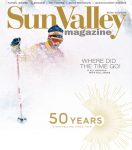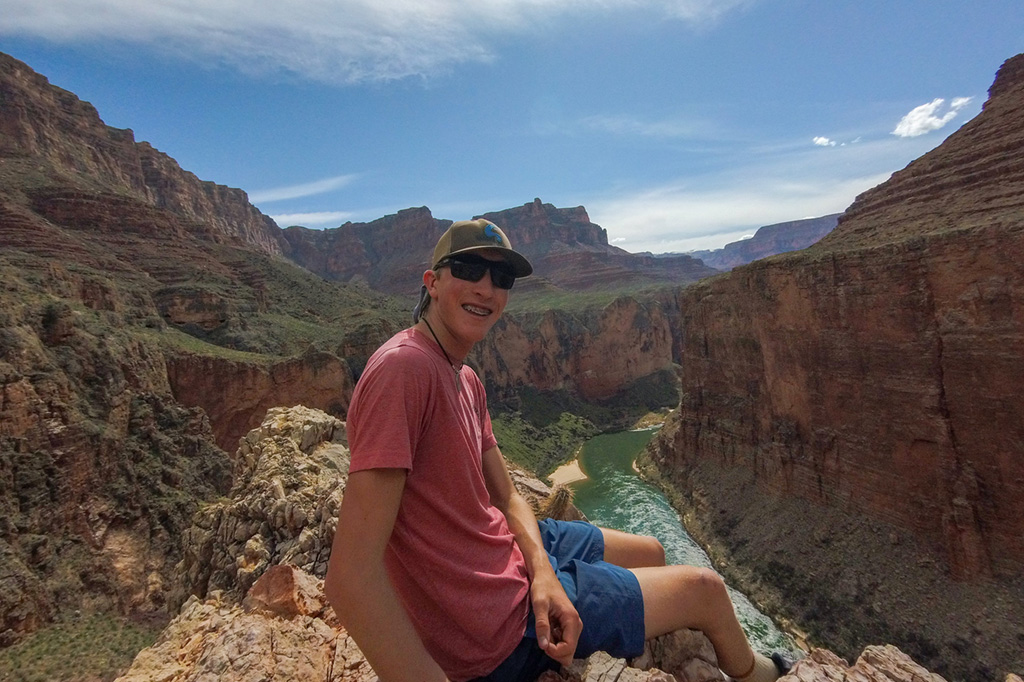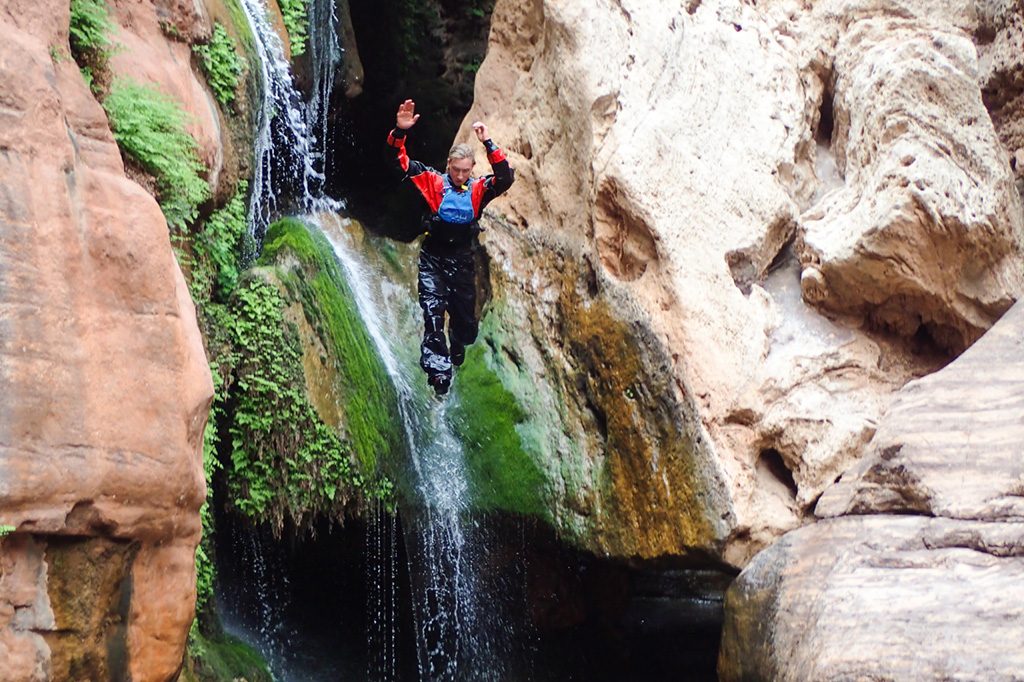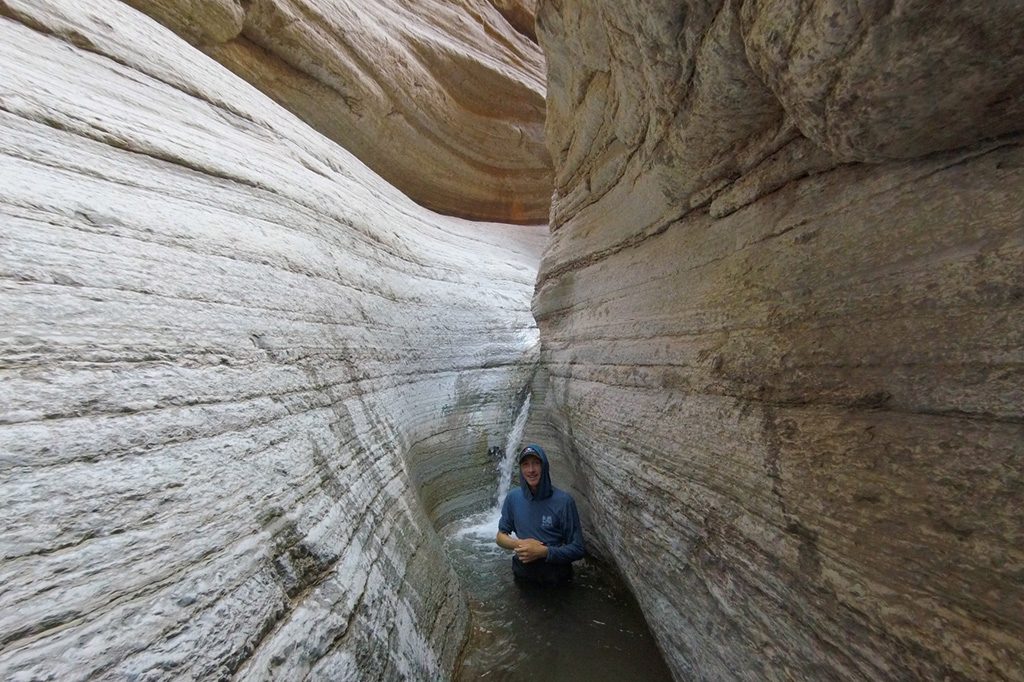High School: The Sage School
Post-Graduation Plans: Attending St. Lawrence University in the fall
Currently, people are increasingly disconnected from the natural world. “Rural areas cover 97 percent of the nation’s land area but contain 19.3 percent of the population (about 60 million people),” said Census Bureau Director John H. Thompson. Increasing numbers of people live in urban environments, and the natural world feels foreign and terrifying to far too many in society. The best way to reconnect ourselves with the natural world is to return to something that quite possibly allowed for the cities, even the culture, in the first place. That something is rivers. In our increasingly urban society, we can use rivers to connect our culture back to the natural world through river recreation, an emphasis on rivers in education, and acknowledging the role that rivers can play in identity development.
Our species is unique in using rivers. What we as humans have been able to accomplish with their resources stands alone, and it is important to respect the evolutionarily unique ways that we use rivers. For instance, no other species has used them for power, travel, agriculture, and perhaps most importantly of all, fun. Our recreational use of rivers is unequaled by any other being on the planet. People who involve themselves in river recreation, whether it be whitewater or fishing or simply relaxing on a river bank, feel a sense of connection to the natural world.
Two of the most popular ways to use rivers are fishing, and kayaking or running whitewater. Both the fishing and whitewater communities experience deep connections to the natural world. Many fishermen feel as Charlie Robinton does about the personal implications of fishing. “Fishing is by nature a reflective and meditative activity that forces you to slow down and enjoy your surroundings” (Robinton, Charlie. “Stay Happy and Healthy: Go Fishing For Physical and Mental Health Benefits”). Kayakers have similarly powerful experiences with the natural world. Dave Seal, a longtime adventure kayaker, speaks for the kayaking communities with these words: “Without a doubt, paddling has brought me to some of the most amazing places in the entire world. It is difficult to understand or quantify the value of experiencing beauty, but it seems to put us in a mental state that allows us to be more connected to the natural world” (Seal, Dave. “Why Do We Travel to Go Kayaking on Difficult, Risky Rivers?”)
River recreation is a relatively easy, fun way to be connected to nature while also improving one’s own life. Indeed, there are personal benefits to river recreation as well. “Benefits pertaining to whitewater recreation are often realized on physical, psychological, emotional, spiritual, and social scales that tend to improve the state or condition of the individual” (Whiting, Jason, et al. “Whitewater Kayaking: a Social World Investigation”). River recreation, without a doubt, can help participants realize some of the beauty in life, as well as the beauty in the natural world. Welcoming in a river experience allows one to share a deeply pleasurable experience with the natural world, which connects them to it.
The beauty of the natural world is often experienced through river recreation such as kayaking. That intersection of personal values and the natural world is very powerful. “Whitewater kayaking is a unique sport that offers opportunities to have profound experiences, some of which can have lasting impacts on the participants. The unique interaction with this fundamental, earth-shaping, powerful elemental force allows kayakers to discover themselves and form unique bonds with nature and each other” (Scharlock, Florian. “The Influence of Whitewater Kayaking on Identity Development”). Whitewater boating is an endeavor in which humans get to interact with the natural world and enjoy the raw power and beauty of our planet. The ability to have this interaction forms a bond between man and river.
One of the beautiful things about rivers is that they are already relatively easy to connect with. While the outdoors can seem foreign and thereby a challenge to enjoy, rivers are already a part of our lives. “A river isn’t only important to the animals who live in it, or the people who boat on it its value reaches to everyone. Even if you’ve never felt the charge of a rapid, or a nimble trout as it slides through your fingers, you’re still connected to the rivers and streams that flow nearby—we all are. Rivers are our main source of clean drinking water, and their economic value, environmental value, and even aesthetic or spiritual values touch each and every American” (Melford, Michael. “Why Do We Need Wild Rivers?”) While those of us from urban environments may be scared to take a step into the woods, rivers are easier to connect to.
Rashid Clifton was born in Charlotte, N.C., and, as a child, always had an affinity for being outside. He found passion in whitewater kayaking at the U.S. National Whitewater Center in Charlotte, which is a series of man-made rapids that allow people to have a natural whitewater experience in an artificial urban environment.
“Jacq Truong, who is now the raft operations manager at the USNWC, taught me how to roll while I was waiting for my carpool one day. The Whitewater Center is really cool because it made it possible to take advantage of the environment right where I live and from there, I got into kayaking because it fully resonated with me. I found a community that was really welcoming, fun, loves the water and loves nature, which is everything I love as well.” (Tenney, Kira. “Unknowns: The River People You May Not Know”).
From his beginnings at the USNWC, Clifton expanded his kayaking horizons into the natural whitewater that North Carolina has to offer and built his own relationship with the natural world. Even for people from urban environments, rivers run deep and have proven themselves to be an excellent window into the natural world for people from all different places.
Since rivers can be so important in connecting us back to the natural world, it would make sense to raise kids with an education system that supports learning about rivers. However, our current education system doesn’t cut it. “The natural sciences in schools in a traditional curriculum are directed towards the manipulation of the resources, which should not be the case” (Orr, David. “Some Reflections on Water and Oil”). Orr writes further, suggesting that, “Water and water purification should be built into the architecture and the landscape of educational institutions.” Fresh water is indeed our most precious resource, and will become of even greater importance in the years to come. Orr’s words speak to the value of a curriculum designed around the importance of rivers to us, rather than the manipulation of resources. It is crucial to learn about rivers because they encompass so much of what we hold dear and are a resource that we absolutely cannot afford to misuse. Learning about rivers means learning about economics, conservation, land use policy, and history.
To start, learning about rivers encompasses learning about economics because rivers are a huge source of national revenue. Recreation alone on the Colorado River generates around $26 billion a year (McBride, Pete, Director. Chasing Rivers, Part 1: The Colorado). It would be 117th on the Fortune 500 list, ahead of McDonald’s, Starbucks, Visa, Tesla, Netflix, Progressive Insurance, and MGM. For reference, the Bureau of Reclamation, which is the agency that manages all of the federal dams in the nation, generates around $1 billion a year. It would be a big step for us to recognize the monetary value in river recreation, and would certainly deepen our connection and understanding of their value to us elsewhere.
Learning about rivers would incorporate learning about conservation. The two are very closely intertwined, and disputes over dams and mines are crucial to protecting our fresh water. If fewer people know about the threats posed to rivers, there will be more water pollution and less clean water in a time that clean water will be in the highest demand. River education will foster a generation that cares for and protects the entire natural world, as rivers are crucial to maintaining healthy ecosystems. “Salmon play an important role in the ecosystem of the region, returning ocean nutrients to the rivers and streams where they were born, feeding wildlife and even the forests with their bodies” (“Salmon Culture of the Pacific Northwest Tribes”). “When the waters run clear again and their life is restored, we might see ourselves reflected whole” (Orr). When our rivers run clear, it will be a sure sign that we acknowledge their importance and that we have a special bond with them.
Learning about rivers would also entail learning about land use policy because the allocation of fresh river water has been at the center of some of the biggest river disputes in the past century. Glen Canyon Dam, which now supports Las Vegas at the expense of recreation and biodiversity on the Colorado River, is one example. The Snake River dams, which have a massive surplus of water that goes wasted every year, are another. In this case, that power could just as easily come from the more sustainable options of solar or wind. Both of these examples show that rivers can bring up complicated land use questions.
Learning about rivers would also mean learning how to get involved with land use. “It’s important that we insist on public access to rivers, safe parks, and other outdoor areas for all communities, urban and rural, big and small. Every child should have a chance to connect with her river and reap all of the benefits of outdoor play” (Kober, Amy. “Three Reasons Families Need Healthy Rivers”). Every child should absolutely have that right, and giving it to them would foster a generation that is more connected to rivers, a generation that can more intelligently care for them.
Finally, learning about rivers means learning about history because from the beginning of human history, rivers have been present. “Whoever controlled these means of [agricultural] production became the effective ruling class. The common techno-environmental basis in all those ancient Oriental civilizations, giving rise to similar social structures in them, was water control” (Worster, Donald. “Rivers of Empire: Water, Aridity, and the Growth of the American West”). Rivers in history have been extremely important to human civilizations. “It is surely no accident that the first civilizations to develop high levels of political centralization, urbanization, and technology were situated in river valleys” (Bulliet, Richard W. et al.“The First River-Valley Civilizations”). In this example, rivers connected people with urban worlds, but the effect goes both ways. Just as rivers allowed people to move from natural environments to urban environments, they can play a key role in assisting our culture in going from urban environments back to natural environments. They have proven to connect the two before, and now we can let them do so again. If we can teach the role of rivers in human history, we can learn how much we need rivers, and thereby incentivize connection with them.
As a society, we underestimate how important rivers are to us, and education is the key to fixing that and repairing our damaged relationship with the natural world. Where rivers have been introduced into school curriculums, there has been success in connecting kids to rivers. In Connecticut, students in the Hartford area did an exercise designed to build understanding of watersheds and water quality. In the end, “The majority of the students found the programs a positive experience. Students stated that they had developed a greater appreciation for science, the rivers in the Hartford area, and the issue of pollution and how it relates to them.” (O’Connell, Suzanne et al. “Connecting Urban Students with Their Rivers Generates Interest and Skills in the Geosciences”). Building this knowledge forms a sense of connection to the natural world, and having students understand how river pollution relates to them is the first step toward healthier rivers and a stronger relationship with the natural world.
Human beings have a strong connection to rivers due to their role in identity development, whether on an individual level or for our entire culture. Rivers are far more important to who we are than most of us can even imagine. “‘What is the meaning of water?’ One might as well ask, ‘What does it mean to be human?’” (Orr). Orr implies that our very being is so closely intertwined with fresh water that they are impossible to separate.
Rivers are fundamental in supporting human life. Not only are they the primary providers of fresh water, which may very well be the most precious resource on the planet, but they also provide a way for people to connect with the natural world and influence human identity. Many people have been lucky enough to enjoy rivers through kayaking, which is something that proves to be a valuable informant on their identities. After a survey by Thompson Rivers University, “The results of the interviews showed that all of the participants’ identities have been affected in some way through their whitewater kayaking experiences.” (Scharlock) It is a deeply human thing to enjoy rivers, and it is a deeply human thing to feel like they are part of your identity. Kayaking happens to bring that out. “Others have suggested that the social interactions experienced in whitewater kayaking can lead to learning more about a participant’s individual identity” (Whiting, Jason et al. “Whitewater Kayaking: a Social World Investigation”). This shows that the identity-related benefits of whitewater are being recognized by a wider and wider range of people, which is the first step toward a greater connection to the natural world.
While personal identity can clearly be influenced by rivers, we also need to recognize and respect rivers’ role in informing larger scale development as well. In civilizational progress, rivers have been critical and should be appreciated for what they have given us. “Fresh-water access has allowed for health and prosperity, connectivity, and even political power since the dawn of civilization” (Lambla, Cooper. “The Journey of Freshwater: Source to Civilization in Bolivia and Nepal”). The National Geographic Society also elaborates on elements of civilizational development that are informed by rivers: “Rivers provided routes for trade, exploration, and settlement. The Volga River in eastern Europe allowed Scandinavian and Russian cultures, near the source of the river, to trade goods and ideas with Persian cultures, near the mouth of the Volga in southern Europe. The Hudson River in the U.S. state of New York is named after English explorer Henry Hudson, who used the river to explore what was then the New World” (National Geographic Society. “River”).
Both Lambla and the National Geographic Society are articulating spokes of our civilizational wheel that rivers have a massive influence on. The Society brings up the point that rivers such as the Hudson allowed cities, massive cultural congregations, to form. New York is far from alone. Paris, London, Cairo, Karachi, Madrid, Moscow, Hong Kong and Shanghai, and many others follow the pattern of being built on river banks. In fact, out of the 10 largest cities in the world, only Istanbul has no river within city limits. There is no debate that our civilizations were built on river banks, both physically and metaphorically.
If we decided to recognize, to celebrate, to respect, and to appreciate the fact that without rivers, we wouldn’t be living as who we are today, we would be shifting how we see the natural world. If we were to respect the fact that rivers gave us a deeper understanding of the meaning of being human, we would be respecting the natural world in a new way. If we were to emphasize that without rivers we would have limited access to one of our most necessary resources, we would be emphasizing that rivers are a part of how we live. If we were to teach people that running whitewater could have an impact on who they think they are, then we would be teaching people to enjoy the natural world. If we as a culture were to recognize how many of our cities, how much of what we have built has a watery foundation, we would be recognizing that we have a bond with the natural world that has strengthened us. Our bond with the natural world could be made by rivers just as our identities have been. Respecting, teaching, and recognizing how important rivers are to us would bond us with the natural world.
Right now, we have become inseparable from our own urban worlds. In general, the 80.3 percent of Americans who live in cities are at a place where the natural world seems foreign. The exposure to rivers would feel natural to people, considering how important they are to us, and that exposure could go a long way. In the words of Kurt Fausch, after his first major experience with rivers, “I first realized then, without forming any clear thought, but only feeling, that this was a world I was drawn to understand” (Fausch, Kurt D. “For the Love of Rivers: a Scientist’s Journey”). Through the incorporation of rivers into education, through river recreation, and through the acknowledgement of rivers in identity development, we can cultivate that draw. We can cultivate the special feeling of wonder and curiosity that Fausch describes, and use it to bond with one of the most special resources we possess. “Wild and free rivers are a key metaphor for the human experience” (Melford). If rivers are as impactful of a metaphor as Melford suggests, they would cultivate a powerful bond. We can use rivers as a powerful tool for our very culture in syncing ourselves up with the natural world, and that bond would be a strictly positive experience for us.




